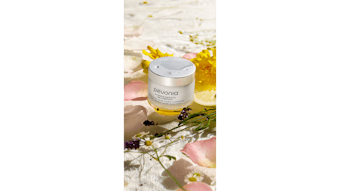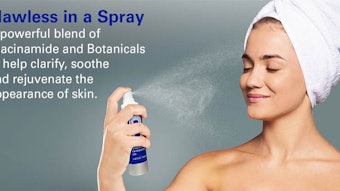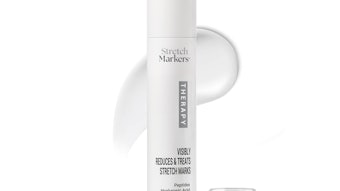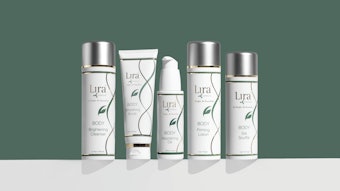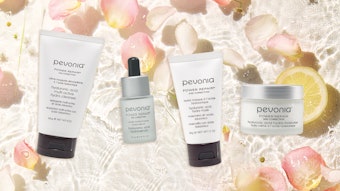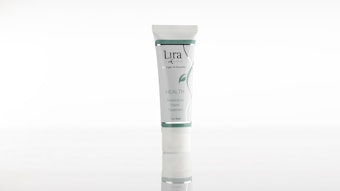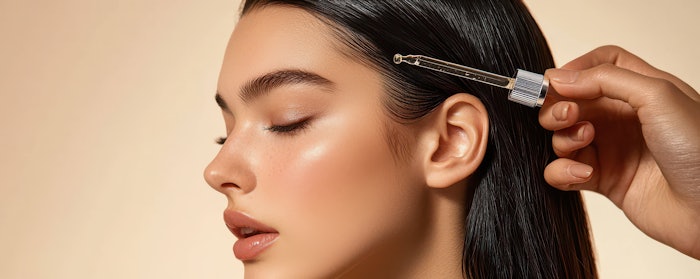
Scalp care's been the growing beauty trend catching on in the immediate post-pandemic wave, as the burgeoning wellness movement changed the lens in which we view skin care and began to be harnessed as a tool to bolster our aesthetic beauty, as well as our health.
"Scalp care is really just an extension of skin care," says Michelle Ventresca, owner of Live by Skin. "When we start treating it that way, everything changes. As estheticians, we already understand how cleansing, exfoliating and nourishing the skin supports overall health. The same applies to the scalp. Adding a scalp treatment to your menu isn’t just a trend. It’s an opportunity to address stress, buildup, stimulate circulation and rebalance the scalp at the root, while offering your clients a deeply relaxing, results-driven service."
If your business hasn't incorporated scalp treatments, even as an add-on, then you're missing out, not only on potential revenue but on a meaningful piece of the broader beauty dialogue.
No sweat! We're here to get you up to speed; here's what you should be aware of about scalp care at its roots.
1. Social media's opened a dialogue.
 Social media has empowered people to talk more transparently about their beauty & personal care habits.Image by Zhuravleva Katia / Adobe Stock.
Social media has empowered people to talk more transparently about their beauty & personal care habits.Image by Zhuravleva Katia / Adobe Stock.
I know, I know—seriously? The superficial landscape littered with filters and user-friendly photo editing programs hosts honest conversations about stigmatized aesthetic issues?
A little bit, yeah.
Obviously, it's important to take this with a grain of salt—not all dialogue is rooted in transparency, and AI certainly has flooded feeds with hokey, hyper-edited images of a distinguished caliber, but social media has also connected people in a way that's not all that different from other major shifts in connectivity as witnessed by the birth of radio and the internet (yeah, remember those?)
"Many clients are unaware of scalp issues or feel embarrassed to bring them up," says Lindsay Worthen, Ogle Schoolʼs veteran cosmetologist & beauty educator. "Itʼs important to observe the scalp during services and gently educate clients when needed. Don't assume they are aware or will communicate the issues or symptoms they are experiencing."
Incorporating scalp services into your business can go a long way in meeting the demands of a clientele with sensitive needs—not unlike clients seeking acne services.
2. Scalp care in the marketplace is leaning sustainable.
 The sheer volume of products on the market means that consumers can prioritize attributes other than just efficacy to choose their brands.Image by Arslan / Adobe Stock.
The sheer volume of products on the market means that consumers can prioritize attributes other than just efficacy to choose their brands.Image by Arslan / Adobe Stock.
Much like skin and hair care, consumer demand for sustainable products is shaping the crop of scalp care products showing up in stores. Organic, plant-based ingredients like aloe, castor oil and rosemary are fan favorites for dryness and hair loss.
Sustainable packaging is another way in which products are distinguishing themselves, uniting the process of caring for oneself and caring for the environment.
Stocking your backbar and retail inventory with sustainable scalp products is a great way to establish value alignment and encourage customer loyalty.
3. Scalp care is becoming more solutions-oriented.
 Clients suffering from hair loss, dandruff or dry scalp may have already taken an interest in scalp care.Image by Sawyer0 / Adobe Stock.
Clients suffering from hair loss, dandruff or dry scalp may have already taken an interest in scalp care.Image by Sawyer0 / Adobe Stock.
Having the right resources and education can cement your services as a more prominent, intentional piece of your client's life, while adding an element of versatility to your business, especially if you cater to a variety of scalp and hair types in your community.
Worthen adds: "Scalp types vary just like skin types: oily, dry, sensitive or combination. Using the wrong products can exacerbate problems. While genetics play a role in hair loss, stress, diet, hormonal imbalances and scalp conditions can also contribute. Estheticians and cosmetologists can help identify patterns and refer appropriately."
4. Even in more selective markets, scalp care is competitive.
 The flood of products, even when searching by price point, is enough to confuse and fatigue consumers.Image by Mr. Png / Adobe Stock.
The flood of products, even when searching by price point, is enough to confuse and fatigue consumers.Image by Mr. Png / Adobe Stock.
Scalp care is still skin care, so we shouldn't be too surprised by this one.
The market is ultra-competitive with the combination of established brands, new brands and even spas and estheticians debuting their own product lines. Even in the realm of luxury scalp care, where the price tag may cull some of the herd, brands are fighting for consumer attention.
Great! That means those purchasing should have their pick of the litter, right?
Wrong. Instead, this is how mistrust grows in the industry, as more products fight to distinguish their offerings with at-times...ahem, exaggerated claims, or marketing buzz words that can allude to a benefit without needing to back up any of it with real certifications and studies.
Does a brand claim it's natural or clean? What exactly do they mean by that? What do you mean when you say you're looking for natural and/or clean products?
The growing emphasis on skin care as a piece of full-body wellness has allowed the scalp care trend to blossom, which is a lesson in itself: we should keep our eyes out for where the next -care trend. The whole body's fair game, from our heads to our toes.

